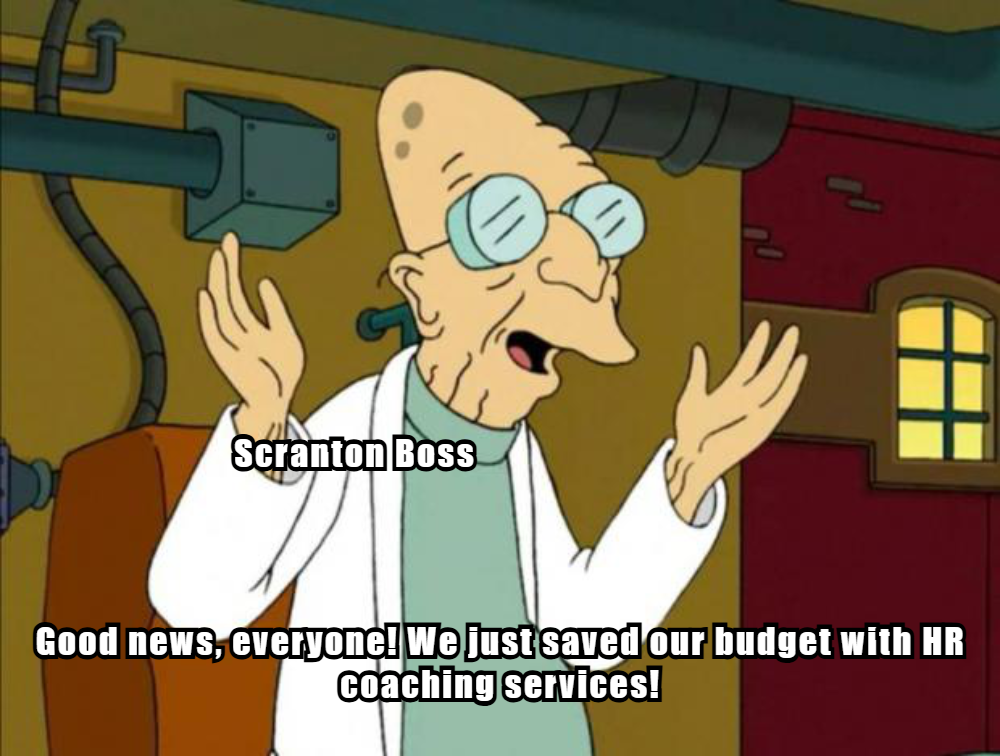Startups are famous for innovative ideas, high growth rates, and disruptive ability. However, many start-ups fail in the first couple of years due to reasons related to organizational structures and human resource management. That is why HR coaching plays a vital role in setting up strong foundations that help support sustainable growth and success.
The Importance of HR for Startups

Why HR Matters from the Start
Most startups tend to disregard HR during their early stages of operation. It is often perceived as unnecessary bureaucracy. This view, however, can be a path to failure in the long run. Here’s why HR matters from the start:
- Sustainable Growth: HR practices create a scalable environment where employees thrive.
- Risk Mitigation: Proper HR functions prevent legal issues and toxic work environments.
- Talent Acquisition: Strategic HR helps attract and retain top talent crucial for startup success.
- Culture Building: HR plays a vital role in shaping company culture and values.
A recent study found that startups with strong HR practices are 70% more likely to succeed than those without. This statistic alone highlights the critical role HR plays in startup success.
Key HR Responsibilities in Startups
HR in startups goes beyond merely hiring and firing. It covers a wide scope of responsibility that is necessary to establish an organizational foundation:
- Talent Acquisition and Recruitment
- Onboarding and Orientation
- Employee Development and Training
- Performance Management
- Compliance and Legal Considerations
- Culture Development
- Compensation and Benefits Management
All these areas demand expertise and strategic planning for effective implementation, which is why HR coaching becomes invaluable for startups.

Role of HR Coaching in Startups
What is HR Coaching?
HR coaching is essentially the collaboration with experienced professionals who can help startups formulate and implement effective HR strategies. It is their expertise and best practices to help startups navigate through the complicated world of human resources.
Benefits of HR Coaching to Startups
- Expertise on Demand: A startup will have access to the services of experienced HR professionals without having to make a full-time hire.
- Tailored Solutions: Coaches adapt HR practices to the specific needs and culture of each startup.
- Scalable Solutions: HR coaching helps build systems that can scale with the company.
- Risk Management: Coaches ensure compliance with labor laws and regulations.
- Culture Development: HR coaches help build and maintain a positive company culture.

Key Areas Where HR Coaching Makes a Difference
1. Talent Acquisition and Recruitment
Startups usually fail to attract the best talent because they do not have much in terms of resources and brand recognition. HR coaching can help in the following areas:
- Developing effective job descriptions and employer branding strategies
- Creating structured interview processes to reduce bias
- Implementing efficient applicant tracking systems
- Designing competitive compensation packages
2. Onboarding and Employee Retention
A good onboarding process is essential for employee retention and productivity. HR coaches can assist in designing comprehensive onboarding programs.
- Writing employee handbooks and policy documents
- Introducing mentorship programs
- Developing strategies for improving employees’ engagement and retention
3. Performance Management
Performance management is key to the growth of any startup. HR coaching can assist by:
- Introducing frameworks for goal setting (such as OKRs)
- Designing performance review processes
- Training managers to give effective feedback
- Creating development plans for the employees
4. Compliance and Legal Considerations
The complexity of employment law is also overwhelming for most startups. In general, HR coaches help develop in these areas:
- Understand and comply with labor laws.
- Compliant HR policy and procedures.
- Employee relations matters.
- Legal risk mitigation around hiring and terminations.
5. Culture and Values
Building a great culture within a company is important for any startup. Coaching may involve:
- Defining the Company Values and articulating those to everyone
- Initiatives that may include building a company culture.
- Creating diversity and inclusion
- Creating training programs in leadership development

Impact of HR Coaching on Startup Success
Case Studies
Let’s use two case studies to understand the impact of HR coaching on startups.
Case Study 1: Company XYZ
Company XYZ, which was a technology startup, was facing difficulties in scaling the company and managing the rapid growth in its team. It appointed an executive coach who coached the CEO and other top management in leadership skills and ensured efficient management practices.
Outcomes:
- Better performance of the team
- Enhanced productivity
- Simpler organizational structure
- Explosive growth and penetration into new markets
Case Study 2: Company ABC
Company ABC, an established manufacturing firm under immense competition, employed the services of a corporate coach in order to align their organization’s objectives, enhance teaming, and encourage innovation.
Outcome:
- There was a massive increase in productivity
- Improved employee morale
- Gained a competitive edge in the market
The above case studies show how coaching can help businesses achieve their potential, unlock sustainable growth, and sustain that growth.

Quantifiable HR Coaching Outcomes
HR coaching can bring in massive measurable impacts for startups as well:
| Impact Area | Statistic |
| Self-confidence | 80% of people who receive coaching report increased self-confidence |
| Work performance | 70% of those coached improve work performance, relationships, and communication |
| ROI | 86% of companies report recouping their investment in coaching and more |
| Satisfaction | 99% of those who hire a coach are “satisfied” or “very satisfied.” |
| Revenue | 51% of companies with a strong coaching culture have higher revenues compared to their competitors |
| Median ROI | 700% (7x) the investment |
These facts speak to the tremendous payoff HR coaching can bring, from enhancing employee performance to higher revenues.
Integration of HR Coaching
When to Bring in HR Coaching
The best time for a startup to bring in HR coaching is at different times, depending on the stage of the startup and its needs. There are some general guidelines:
- Early Stage: When you start to hire employees, it would be good to bring in HR coaching to set up simple systems and policies.
- Growth Stage: At 20-30 employees or after a Series A funding round, you will need more formalized HR practices.
- Scaling Stage: As you rapidly expand, HR coaching can help manage the complexities of a growing workforce.

Choosing the Right HR Coach
When selecting an HR coach for your startup, consider the following factors:
- Experience: Look for coaches with specific experience in startups and your industry.
- Approach: Ensure their coaching style aligns with your company culture and values.
- Specialism: Select coaches who have experience in those areas where you are weak, such as recruitment, culture building, and compliance.
- References: Ask for and follow references from other startups that they have worked with.
- Flexibility: Startups require a flexible coach who can keep abreast of the fast-changing nature of the environment.
HR Coaching Benefits Maximization
To extract the most from HR coaching:
- Clear Goals: Specify what you want to achieve from the coaching.
- Commit Time and Resources: Dedicate sufficient time and resources to implement recommendations.
- Involve Key Stakeholders: Ensure buy-in from leadership and key team members.
- Be Open to Feedback: Be prepared to receive and act on constructive feedback.
- Measure Progress: Regularly assess the impact of coaching on your HR practices and overall business performance.
Building a Strong HR Foundation: Best Practices for Startups
1. Establish Your HR Department Structure
Even if you’re not ready for a full HR team, have a basic plan for HR structure and operation. This plan will guide your HR development as your company grows.
2. Implement HR Technology
Invest in an all-in-one Human Resource Information System (HRIS) to manage core HR functions efficiently. This can help automate administrative tasks and provide valuable analytics.
3. Create Comprehensive Onboarding Procedures
Develop a comprehensive onboarding process to set new hires up for success on day one. It will involve necessary paperwork, company orientation, and role-specific training.
4. Develop Clear Policies and Procedures
Develop an employee handbook that outlines the company’s policies, benefits, and expectations. All employees should be on the same page, and confusion is thus minimized.
5. Encourage a Learning and Development Culture
Implement training programs and encourage continuous learning. This not only improves employee skills but also contributes to retention and engagement.
6. Prioritize Diversity and Inclusion
Make diversity and inclusion a priority right from the beginning in hiring and company culture. It leads to better decision-making and innovation.
7. Implement Regular Performance Reviews
Institute a system of regular performance feedback and goal setting. This will ensure that the efforts of employees are in line with the goals of the company and, hence, offer room for growth.
8. Provide Competitive Compensation and Benefits
Research industry standards and offer competitive packages to attract and retain top talent. Consider creative benefits that appeal to your target workforce.
9. Foster Open Communication
Encourage an environment where your employees feel safe to share their ideas and concerns. This helps in solving problems and being innovative.
10. Be Labor Laws Compliant
Be current with all the labor laws and regulations relevant to your company. This ensures that you are safe from legal matters and shows that you respect your employees.

The Future of HR in Startups
As startups keep changing, so will the role of HR. Some things to look out for in the future include:
- AI and Automation: AI will be used more for recruitment, onboarding, and performance management.
- Remote Work: Strategies for the effective management and engagement of remote teams.
- Employee Wellness: Greater focus on holistic employee well-being, including mental health support.
- Continuous Feedback: Moving away from annual reviews to more frequent, informal feedback sessions.
- Data-driven HR: Analytics will be used to inform HR decisions and strategies.
Conclusion
HR coaching is a very important aspect of building strong organizational foundations for startups. Expertise, guidance, and strategic planning in key areas such as talent acquisition, performance management, and culture development are what HR coaches do to help startups create scalable and sustainable HR practices.
The evidence is clear: improved employee performance, higher retention rates, stronger company culture, and ultimately, better business results. In the case of startups and navigating the hurdles of growth and scaling, HR coaching gives the necessary support and structure for competition in a highly competitive landscape.
Implementing best practices and tapping the expert knowledge of HR coaches for creating a strong foundation to realize specific vision and goals becomes one of the important steps to execute. This investment into HR not only looks for the immediate needs to get fulfilled but also lays out for long-term success and sustainability.
FAQs
1. When should a startup start thinking about HR?
A: Startups should consider HR from the get-go, when they start to hire employees. Even when there are only a few, establishing basic HR practices avoids later problems.
2. Can’t founders do their own HR in the early stages?
A: While founders often do the initial HR, it is valuable to seek HR coaching sooner than later to ensure one establishes best practices and avoids some common pitfalls.
3. How much should a startup budget for HR coaching?
A: This will depend on the needs of the startup and the experience of the coach. However, most startups find the return on investment to be well worth it, with one study showing a median return of 700% on investments in coaching.
4. Is HR coaching only for large startups?
A: No, HR coaching can benefit small startups as much as large. Even the smallest startups benefit from guidance in setting up foundational HR practices.
5. How long does it typically take to see the results of HR coaching?
A: Some benefits would be immediate, such as hiring processes; others may be several months down the road, such as changes to company culture or employee engagement.

